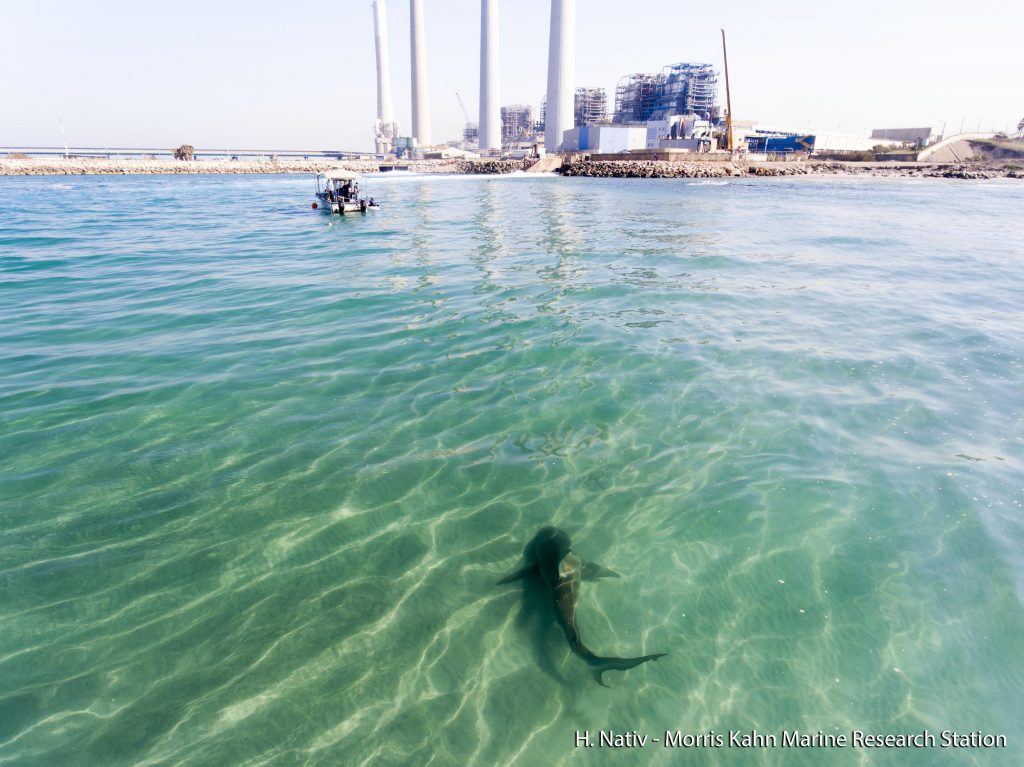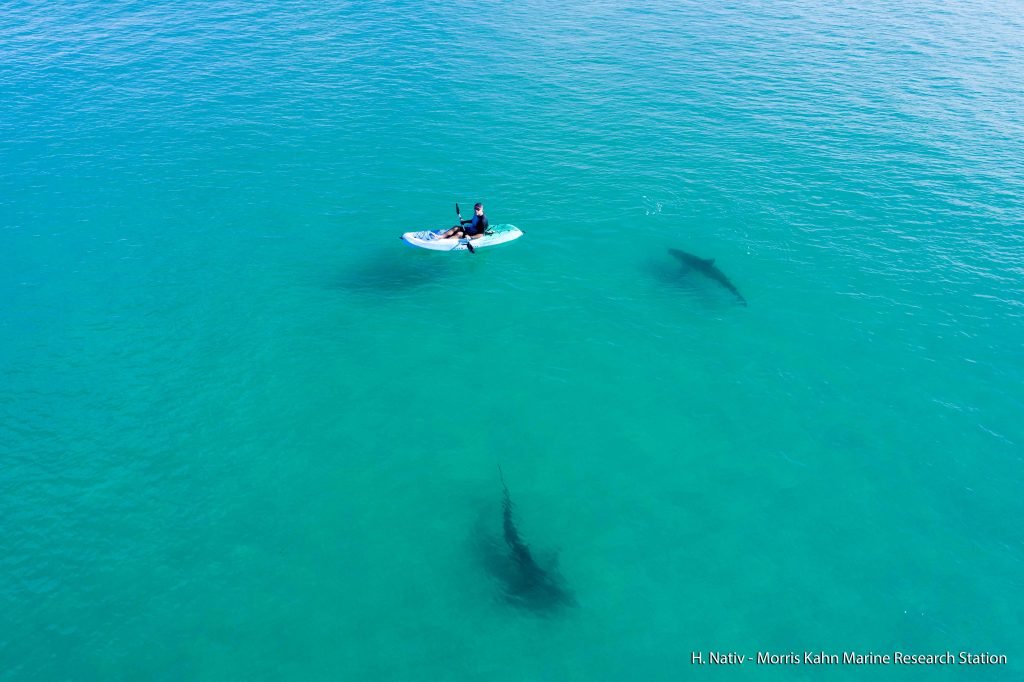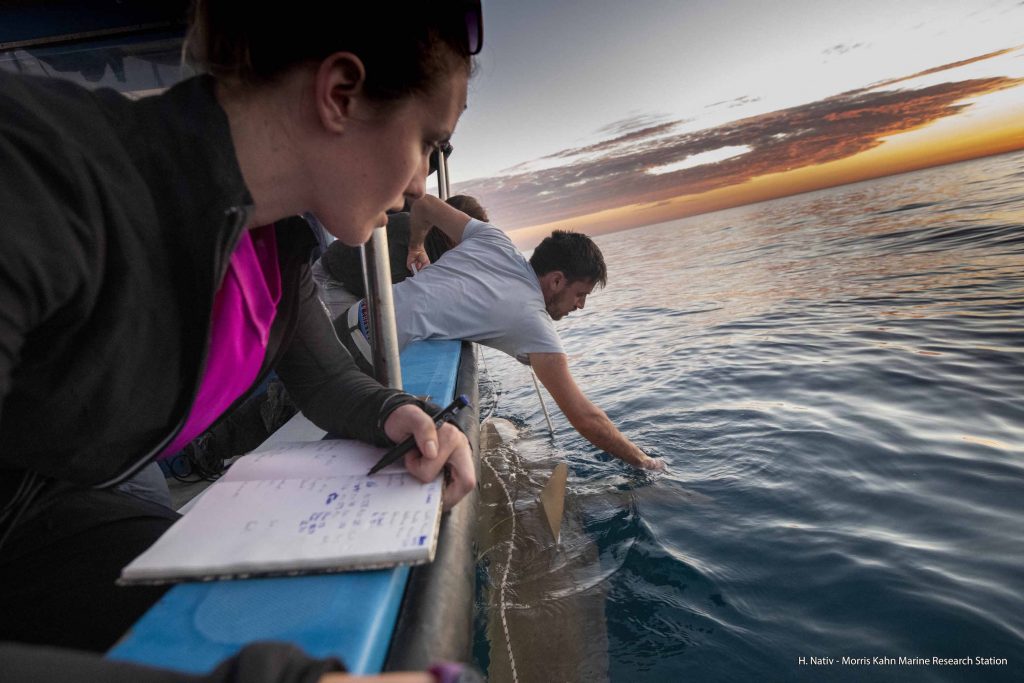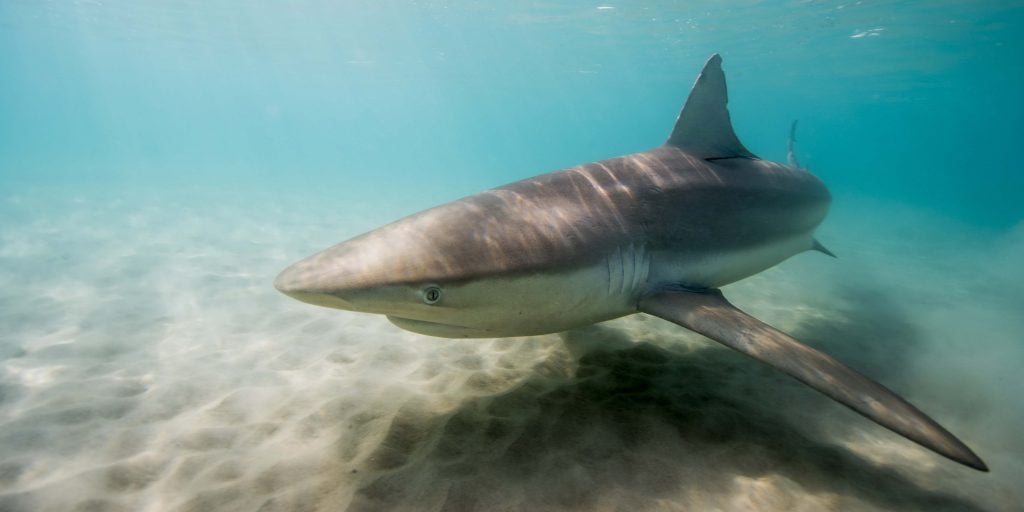Over the past several years, researchers have noted that dozens of sharks have been flocking to the coast off of the northern Israeli city of Hadera during the winter months.
Scientists have spotted an increasing amount of sandbar and dusky sharks in the area, drawn by the warm waters pumped into the sea by the Hadera power plant well and rising temperatures in the Mediterranean generally.
The site has become a draw for tourists.
SEE ALSO: Could Jellyfish Help Rid Our Waters Of Plastic Waste? Israeli Scientists Are On It
Earlier this year, marine biologist Dr. Aviad Scheinin, manager of the Top Predator Project at the Morris Kahn Marine Research Station established by the University of Haifa, called the sharks’ behavior a “rare phenomenon.”

“The paradox that we see here is that this is not a natural environment … and you cannot see it anywhere else in the vicinity,” Dr. Scheinin told Israeli news daily Ynet in January. “This phenomenon is influenced and created by [mankind], both with the power plant and the sea’s increasingly warm water.”
According to a recent study, climate change has impacted the Mediterranean Sea in ways that “exceed global trends.” The research, published in October 2018 in Nature Climate Change, showed that “average temperatures in this region have already risen by 1.4°C since the pre-industrial era, 0.4°C more than the global average.”
“The winters are not as cold as they used to be here, and they are no longer a limiting factor for sharks,” Scheinin told Ynet. “Many new shark species are coming to the eastern Mediterranean from colder areas and establishing populations.”
But no one really knows exactly why and the behavior is part of ongoing scientific research.
Eyal Bigal, a marine ecologist at University of Haifa’s Leon H. Charney School of Marine Sciences and manager of the Top Predator Laboratory at the Morris Kahn Marine Research Station, says Israel is becoming a hub for Mediterranean shark studies.
“Israel has become an unlikely home for the sharks during the winter months,” Bigal said in a Q&A about sharks in the Mediterranean released by the university to mark Shark Week. The annual, week-long TV programming schedule by the Discovery Channel, which starts on Sunday and features shark-focused shows and documentaries, has become a worldwide hit since starting in 1988 as part of conservation efforts and bids to correct misconceptions about these notorious ocean predators.

“What’s been fascinating is that the sharks have been aggregating around the country’s coastal power stations, perhaps due to the higher temperatures creating a jacuzzi effect near the plants,” Bigal says.
Sign up for our free weekly newsletter
SubscribeBigal explains there has been very little shark research done in the eastern Mediterranean “so, with the sharks now being so accessible to us, it really is such a unique phenomenon.”
“We’re utilizing the aggregation of the sharks to learn more about them during the six months of the year hat they’re on Israel’s coasts, generally from November to May. Through techniques such as tagging, we’ve already determined that some of the same sharks are coming back each year – so far we’ve tagged around 50 sharks,” says Bigal, who along with research colleagues, has been studying sharks for the better part of four years.
The researcher says Israel is actually “doing a lot to help” shark conservation, mainly by having no local consumption market as the animals are not kosher according to Jewish law.
“They’re not being fished … and we’ve created somewhat of a safe haven for them, unlike in many nearby regions,” says Bigal.
He warns that the fact that the sharks are currently drawn to human-altered habitats “may not indicate a positive trend at all,” and that it was “very surprising that [the] top marine predators been coming here in large numbers,” as the Mediterranean was still “one of the most nutrient-poor regions in world.”

The sea, he says, “is one of the most dangerous environments for sharks. Over the last 60-70 years we’ve lost 95 percent of the population.”
Bigal is calling for much more research to be done before any clear conclusions can be made about protecting the animals.
“There are consequences to everything we do, and we can see that from sharks being drawn to power stations here in Israel. We need to establish marine protected areas that restrict human activity and protect their natural resources,” he says.
In terms of the tourist attraction, Bigal has some words of caution.
“People swim with the sharks here in Israel and they’ve never bitten anyone but, at the end of the day, they’re large wild animals which are potentially dangerous. Perhaps it’s wrong though to think of the sharks as “them.” They are individuals who have different personality traits. Some are likely to be more comfortable around us than others,” he says.
Related posts

Resilient And Nutritious New Plant-Based Milk Aims To Make A Splash

Chocolate From Cultivated Cocoa Comes Without Environmental Toll

Plastic Fantastic: Startup Takes PVC Back To Its Crude Oil Roots




Facebook comments